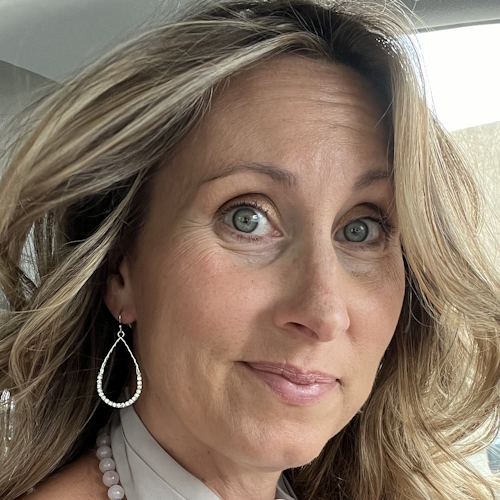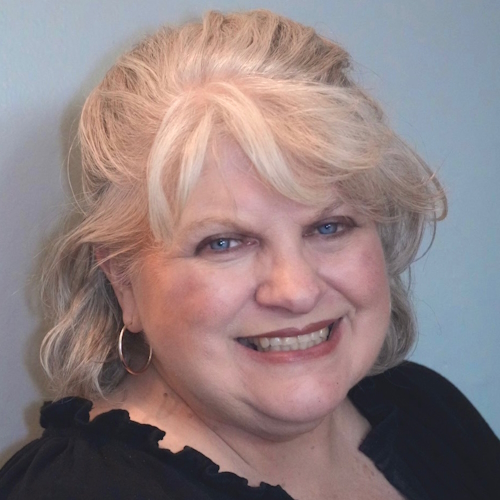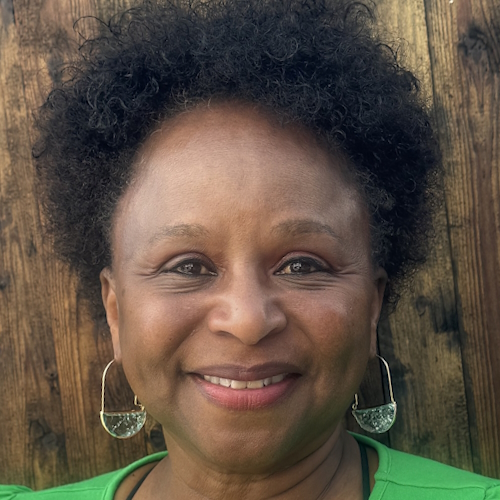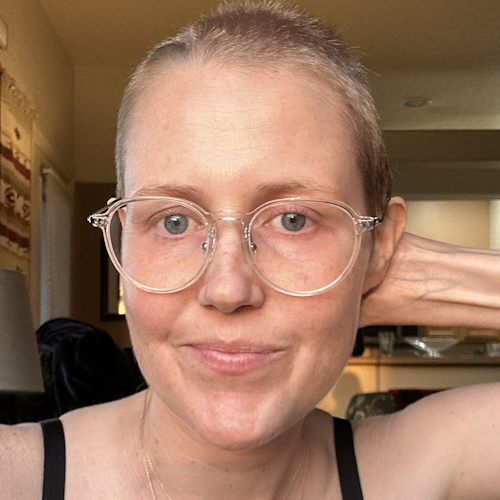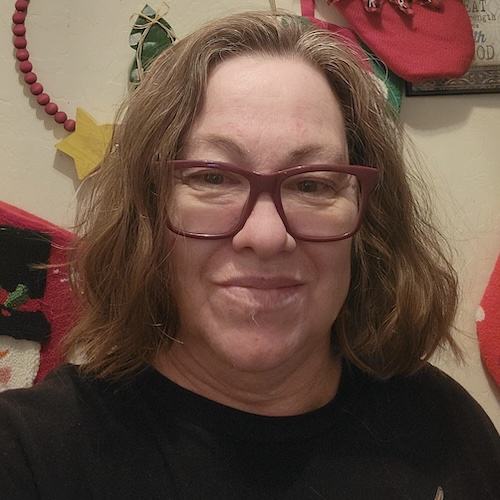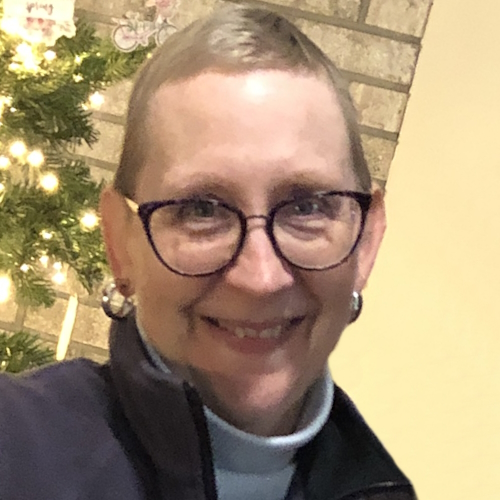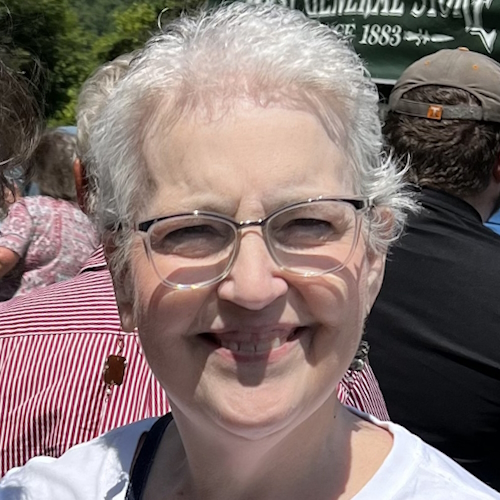“You Are Not Your Cancer”: Colleen’s Stage 4 Endometrial Cancer Message
Colleen discovered she had stage 4 endometrial cancer in 2022, when she was 54. Her story began with severe, unusual menstrual bleeding, which she humorously calls “crime scene periods,” and episodes of extreme weakness. Doctors told her she was just experiencing perimenopause. Her symptoms persisted until she and her husband moved to Germany, where she had a car accident. She was lucky enough to escape injury from the accident — but during her ER check-up, doctors unexpectedly found a mass in her abdomen. This twist of fate ultimately led to her diagnosis.
Interviewed by: Taylor Scheib
Edited by: Chris Sanchez
After she was diagnosed, Colleen leaned heavily on credible medical resources focusing on endometrial cancer, rather than simply searching online. She underwent a multitude of treatments: a full hysterectomy, radiation, brachytherapy, and chemotherapy. She was initially declared “no evidence of disease,” but later on her doctors discovered that the cancer had spread to her leg and lung. Her voice, once her signature as a singer, was deeply affected, challenging her sense of identity and plunging her into emotional lows. But Colleen ultimately managed to shake off these challenges.
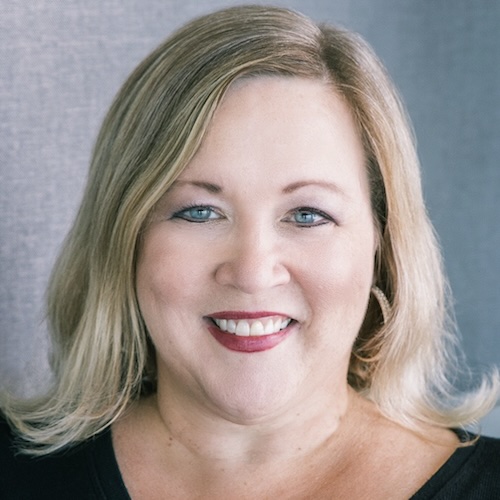
Mental health became a pivotal part of her healing. Colleen found solace in community support, friendships, and maintaining a semblance of independence. Her message is clear: “You are not your cancer.” She urges others to find their support systems, relentlessly communicate with healthcare providers, and cling to personal beliefs that provide comfort.
Watch Colleen’s video and read her story. You’ll find out more about:
- How a car accident led to her life-changing diagnosis
- “You are not your cancer” — Colleen’s heartening mantra
- How losing her singing voice affected her identity
- The emotional toll of stage 4 endometrial cancer and finding light in community
- The crucial role of self-advocacy in Colleen’s health journey
- Name: Colleen J.
- Age at Diagnosis:
- 54
- Diagnosis:
- Endometrial Cancer
- Staging:
- Stage 4
- Symptoms:
- Very large blood clots during menstruation
- Anemia
- Treatments:
- Chemotherapy
- Radiation therapy: brachytherapy
- Surgery: full hysterectomy
- Immunotherapy


Thank you to Karyopharm Therapeutics for supporting our patient education program. The Patient Story retains full editorial control over all content.
This interview has been edited for clarity and length. This is not medical advice. Please consult with your healthcare provider to make treatment decisions.
- About Me
- When I First Noticed That Something was Wrong
- My Symptoms Had Progressed Even Before the Car Accident
- The Tests the Doctor Did
- The Moment Everything Changed
- The Cancer Spread
- How My Care Team Shifted When My Cancer Spread
- Where I’m At in My Diagnosis
- My Knowledge of Clinical Trials
- How I’m Managing my Mental Health
- What I Want Others to Know
… whatever you believe in, hang on to it. If it’s a religious belief, if it’s a way to lead your life, hang on to those things.
About Me
Hi, my name is Colleen.
I was diagnosed with endometrial cancer in 2022, when I was 54.
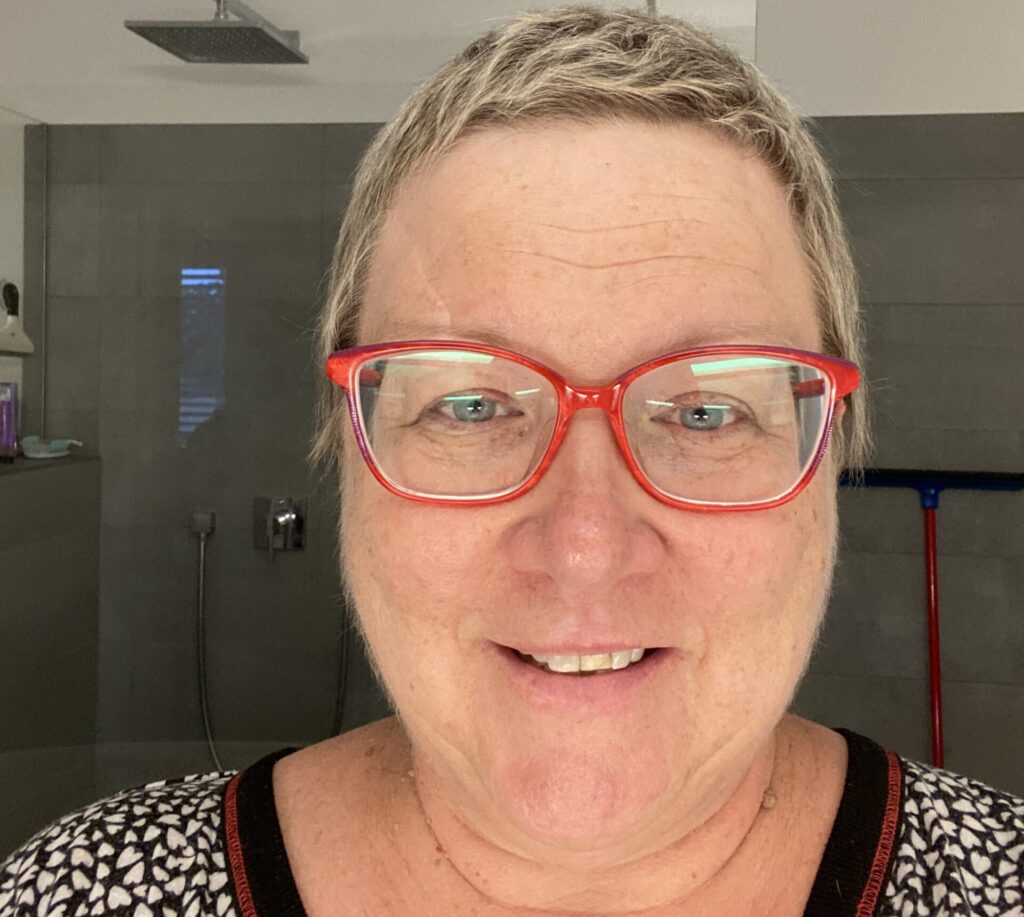
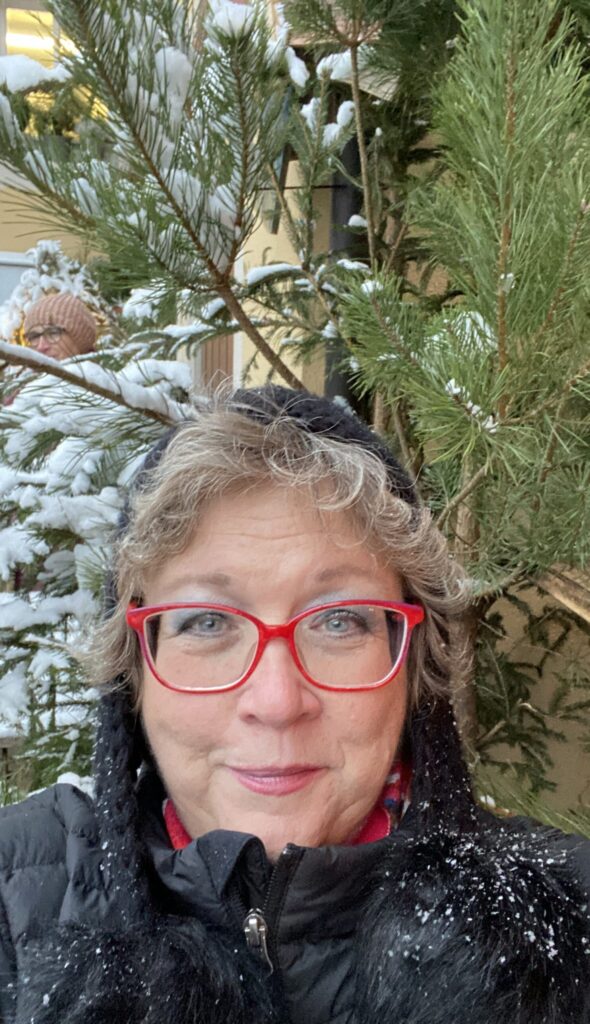
When I First Noticed That Something was Wrong
The first time that I wasn’t feeling right, I was living on the island of Guam. It was before COVID, probably in 2019. I was at a volunteering event for the United Service Organizations.
I had to tell the woman that I was working with that I needed to leave, which was very unusual for me, but I was just feeling very unwell. I couldn’t catch my breath and felt very weak. I thought this probably was the onset of a big anemic episode, because then, when I got home, I had what I like to call a “crime scene period” — a menstrual period with very large blood clots.
I couldn’t find a doctor who would take my insurance in Guam. I went back to the States to visit my husband and saw a doctor there. And that doctor said, “Oh, you know, it’s probably just perimenopause. You’re at that age where this can start coming on, so I wouldn’t take it too seriously.”
Then we moved to Germany, and one of the first times I was driving in Germany, I got in a car accident.
They took me to the emergency room. I was totally fine after the accident. No issues. I walked away from it.
But the ER doctor came and said, “You know, we found something unusual in your abdominal area, so we’d like you to refer to our OB-GYN? Are you interested in doing that?” And I said, “Sure.”
Before the accident, I had actually been experiencing more “crime scene” menstrual periods, and they even seemed to be getting worse.
My Symptoms Had Progressed Even Before the Car Accident
Before the accident, I had actually been experiencing more “crime scene” menstrual periods, and they even seemed to be getting worse.
In hindsight, looking back, I was actually having a hemorrhage. I was going through multiple pads in 20 minutes. I would be doubling up on tampons and going through them in 20 minutes or half an hour, which would be described as hemorrhaging if it were any other type of issue. Something that you would need to go to the emergency room for.
But because this one doctor had told me, “Oh, you know, you’re perimenopausal, this just is par for the course,” I thought, “I guess this is normal,” even though it didn’t seem very normal.
The Tests the Doctor Did
He did an ultrasound in his office and went, “Oh, yeah, I’m going to keep you in the hospital.” So, this is still from the hospital stay from the car accident. “We’re going to do a DNC so that I can get enough tissue to send for a biopsy.” Because that’s the other thing with endometrial cancer. If they don’t get it in the right part of your uterus, then you can also have a misdiagnosis, because they’re not getting enough tissue, or they didn’t go to the right area.
Luckily, he was an oncologist before. He got his OB-GYN certification. So he knew a little something about what was going on.
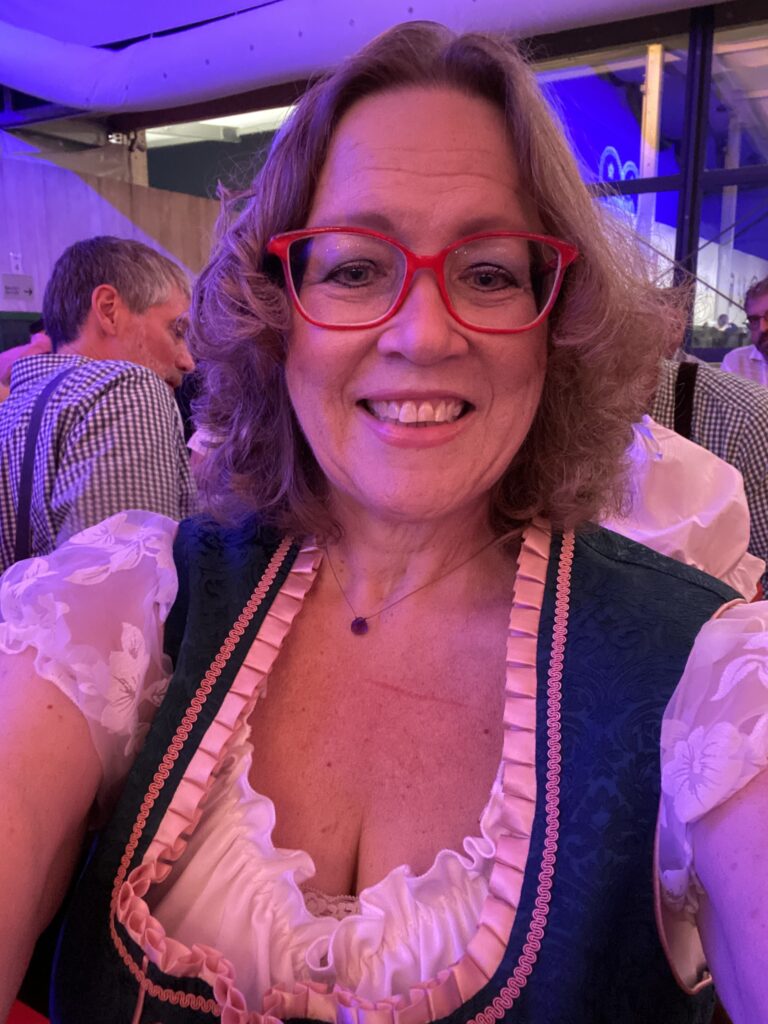
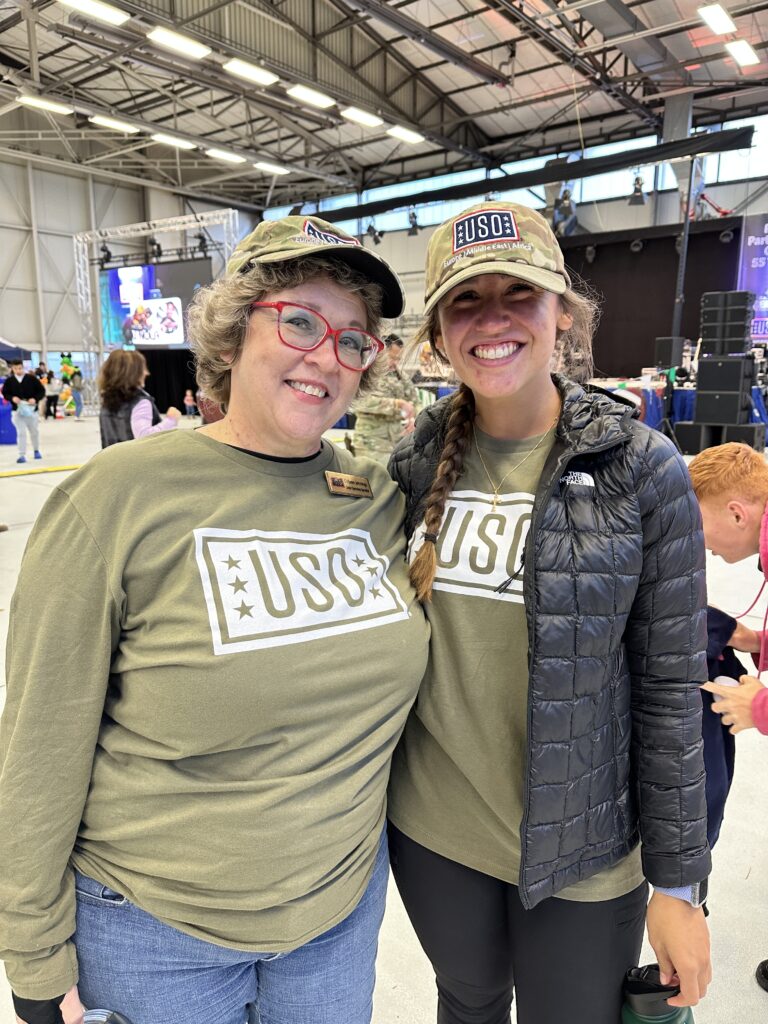
The Moment Everything Changed
I don’t know when I heard the word ‘cancer.’ Well, nobody ever wants to hear that word, but my OB-GYN was really a positive person.
He went, “Listen, we’re going to schedule you for a full hysterectomy. We’re going to take a look around at the other organs in the area, see what’s going on. But if this is in the early stage, this could have a really good outcome for you. So, no need to worry right now about it. Even though I’m telling you ‘cancer,’ and nobody likes to hear that, let’s take each thing as it comes. Instead of trying to see into the future.”
I took it to heart. Generally, I felt okay; I wasn’t hurting and didn’t have a lot of pain at the time.
I actually knew nothing about stage 4 endometrial cancer, let alone endometrial cancer. The education was from what my doctors were giving me here and from going to reputable cancer sites. So, not just using Doctor Google and picking the first article that came up, but from the Cleveland Clinic, Mayo Clinic, MD Anderson, and other leading cancer centers in the US.
I was trying to back up what I needed to do and what the typical treatment would look like.
The Cancer Spread
After that point, I had my treatment.
I did radiation for 28 days. I did brachytherapy, which is an internal radiation in the vagina. Three sessions of that. That’s all standard. I didn’t start with chemotherapy, so they did my hysterectomy in April 2022. I didn’t start my chemo until October, and so then my chemo finished up in around March of 2023. Well, maybe a little earlier than that.
At that point, they considered me “no evidence of disease.”
Nine months afterward, though, right before Christmas 2023, we found out that the cancer had spread to my leg. My leg broke while I was putting on my pants.
Oh, that was a big emotional time. I mean, anytime you hear about bone metastasis, it’s not good news. Cancer is practically impossible to get out of the bone. It’s very hard to treat. Pretty much all you can do is slow it down.
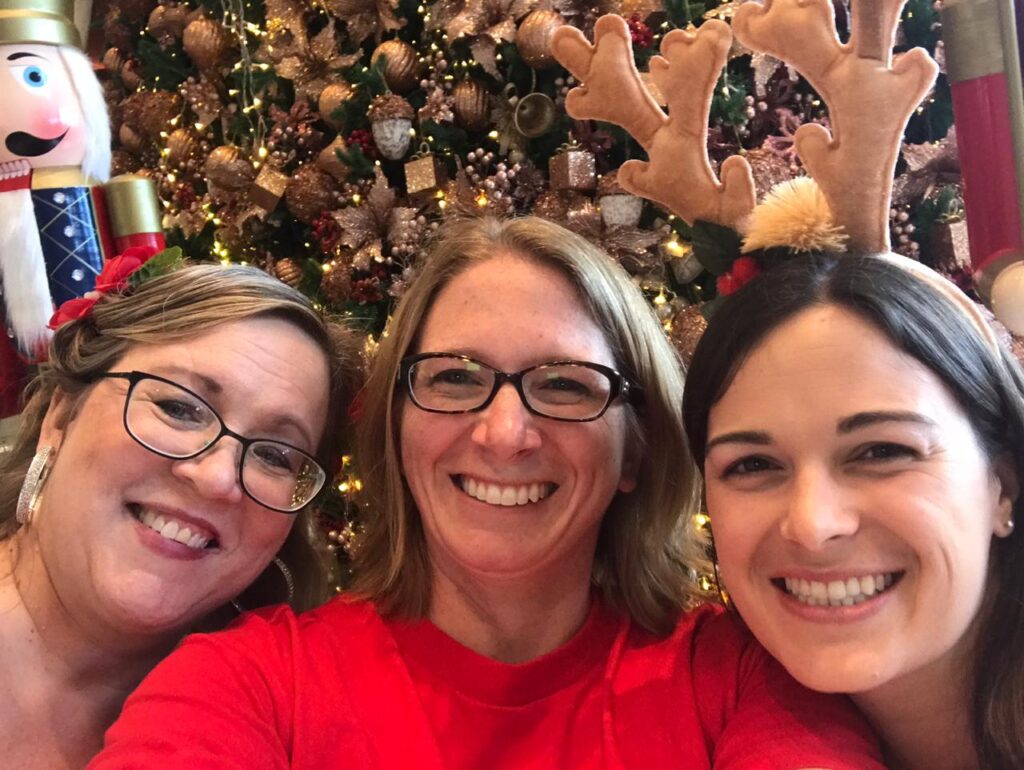
… anytime you hear about bone metastasis, it’s not good news. Cancer is practically impossible to get out of the bone.

How My Care Team Shifted When My Cancer Spread
As my disease was progressing, the doctor said, “Okay, it’s time to move on. We have some other teaching hospitals in the area.”
So he moved me over to get most of my care through those hospitals and through my infusion clinic that I go to now. So he knew when it was time to release me as well. I felt like he was watching out for me and was trying to offer me the best choices that were available.
When I broke my leg, I wasn’t under his care. I was under the care of the orthopedist at the same hospital where he worked. Although he always asked that when I come to that hospital that I stay in his ward. Because he knows my whole history, he can keep an eye out for me.
Breaking my leg was pretty traumatic. I’m kind of a get-up-and-go type of person. I don’t want to be limited in what I can do. I was fighting with everything to get back to driving, get back to being more independent.
I really liked my care team in the bigger facilities, like my radiological oncologist, and I liked that I actually ended up having to see a pulmonologist, because they discovered while I was healing from the femur break that I also had metastasis in my lung.
It was freaky. You can see the damage to my vocal cords. They were extremely swollen from having tubes stuck down so many times during the surgery for my leg. I had a failed bronchoscopy, a successful bronchoscopy, and then the surgery. The pulmonologist at the bigger hospital was really trying to take care of it, but he said, “The damage was done even before I got a chance to get the tubes down your throat.”
I took a good six months, maybe even a little longer, to get any type of singing sound out of my voice, and to have my voice not sound scratchy when I was speaking.
I’ve been known for having a beautiful singing voice. It’s been such a big part of my identity since I was tiny. I started singing when I was three.
My voice is such a big part of my identity that when cancer affected it, it sent me spiraling into a depression of sorts.
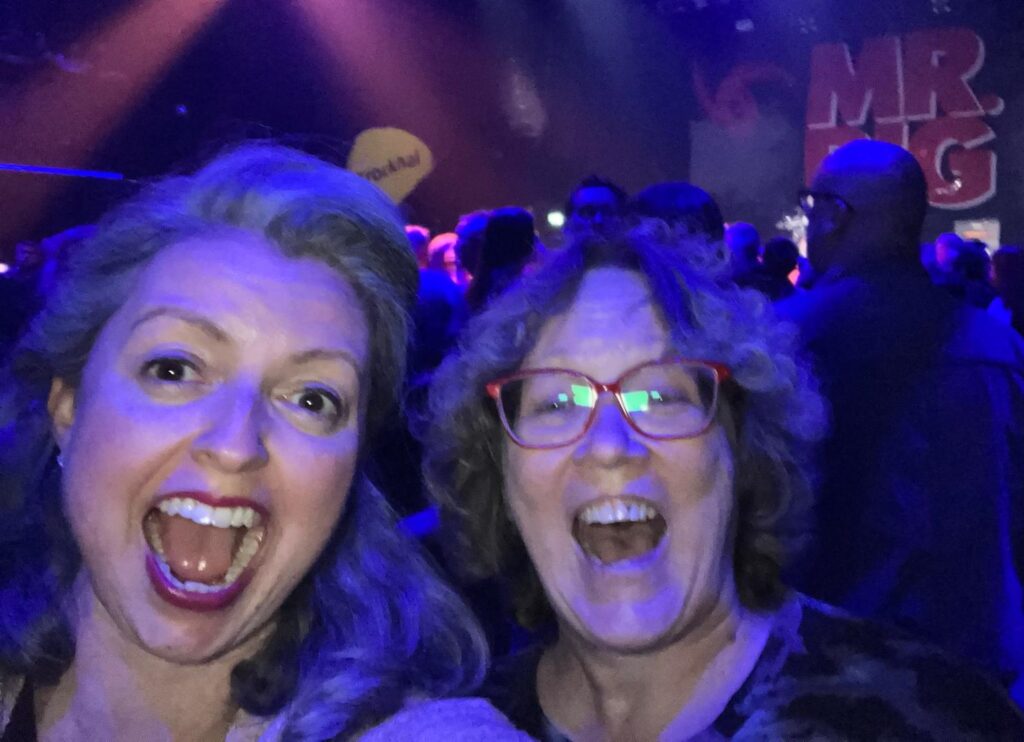
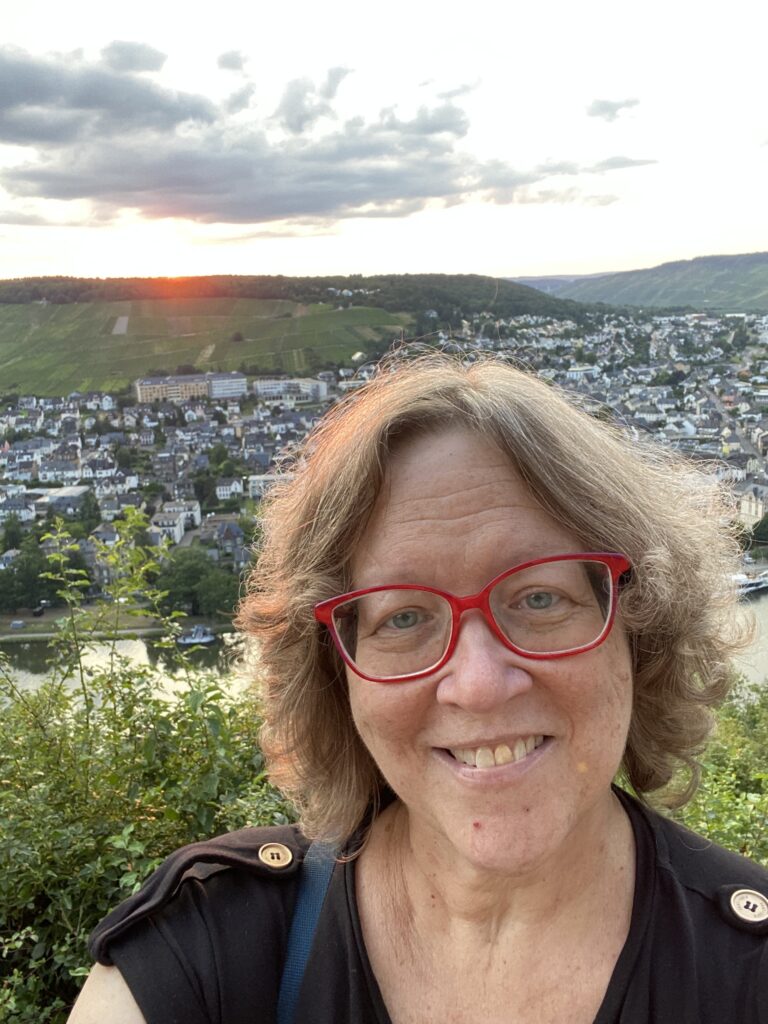
Where I’m At in My Diagnosis
I had an episode during which I coughed up blood. What with that and my metastases, they said, “Let’s try something other than chemo.” They put me on immunotherapy for about six months.
That was miserable, pretty much because I was eating that soft food diet, kind of the same diet as when I was having the radiation therapy in my abdomen. But I would get sores in my mouth, and I couldn’t eat anything. I went from being 200 pounds down to 126 pounds. Then that stopped working because I had another episode.
They decided, “Okay, let’s go back with the traditional chemo, but we’re going to see you every week. It’ll be a lower dose.” That’s what I just finished in July. And then I had a few spot radiation treatments on my leg where it had broken on my knee and on my hip.
And then they found another potential area of concern in my hip. So they did a biopsy of that. It had to be sent to the Molecular Tumor Board.
I haven’t heard back about what molecular markers might be available for other treatments for me.
I had an episode during which I coughed up blood. What with that and my metastases, they said, “Let’s try something other than chemo.” They put me on immunotherapy for about six months.
My Knowledge of Clinical Trials
The doctors haven’t referred to clinical trials. The area that I am in is so rural that I don’t think there are a lot of clinical trials that happen here. And they have used the term ‘palliative care,’ which freaked me out the first time. Because I have stage 4 endometrial cancer, they’re considering everything that they’re doing.
I’ve been on palliative care for a year and a half. They consider it an extra level of care for patients who might need some help doing things.
My infusion doctor said, “We have these teams of doctors and nurses that will come into your house and help you. So, we would call that home health care. Except for your getting a doctor and a nurse coming in.” So he set me up with them.
He added, “The great thing about them is that they can help you manage your pain a lot better than I can.”
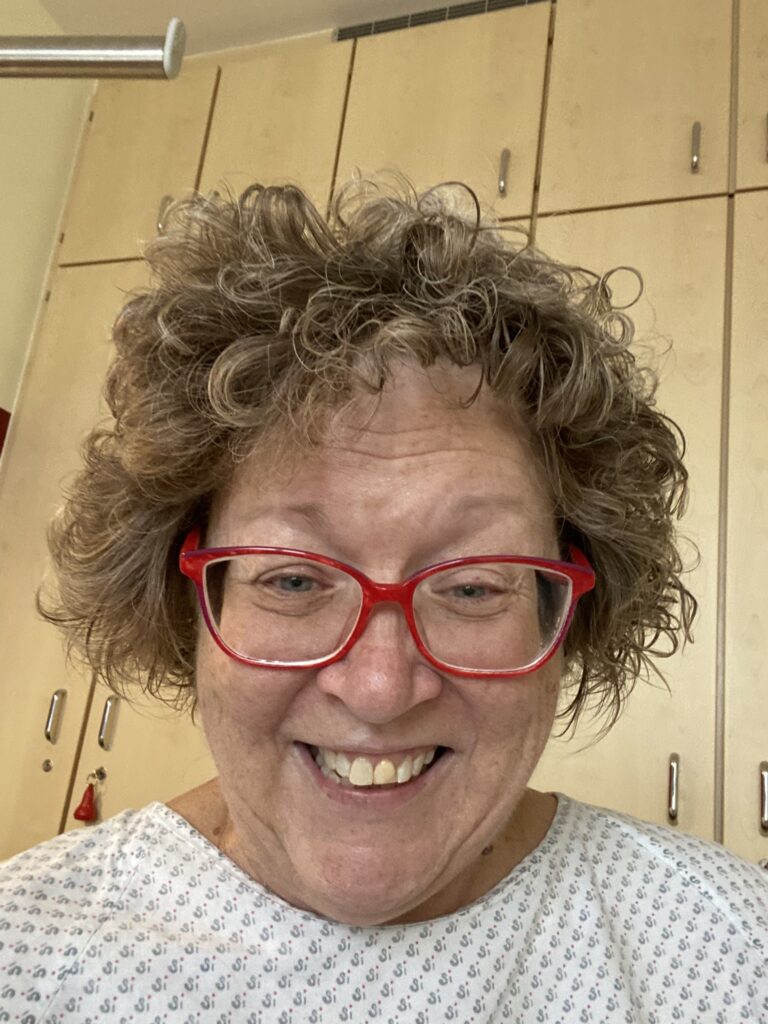
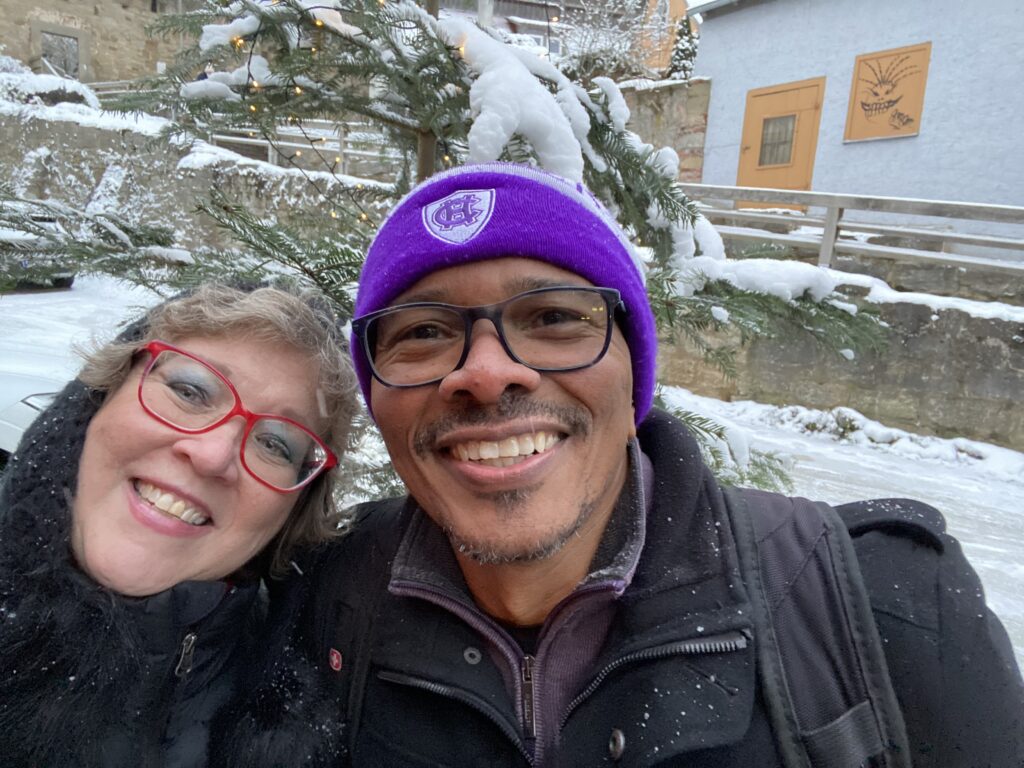
How I’m Managing my Mental Health
Unknowns are hard. I like to be in control. So that’s what my stage 4 endometrial cancer experience has been about. Sometimes you just have to release it. Release it and keep pressing. Like with the pain. Keep telling your doctors over and over about it.
It’s also been important to stay connected with my friends and stay involved in the community.
I should also add that maintaining my independence is also really important. Continuing to be able to get myself around if I want to go for a drive, although I’m doing that less and less, because my right leg is the one that has the cancer. So, it’s not great for driving sometimes. I just stay home if I need to stay home.
It’s also been important to stay connected with my friends and stay involved in the community.
What I Want Others to Know
You are not your cancer. You can do what you want to do with it.
Although stage 4 endometrial cancer does have something of my identity. It’s a new identity that I have besides being a singer, a wife, and a singing teacher who is now raising awareness about cancer.
It’s really easy to go inward and reduce your social circle. But I would urge people to find your compatriots, like through some of the groups on Facebook. There are a lot of really great groups on Facebook for a lot of different types of cancer.
It’s interesting how some friends react. Some will become more distant, but others will set up your meal trains and sign up geniuses for you.
I think the biggest thing for me has been a chance to reflect on cancer, and whatever you believe in, hang on to it. If it’s a religious belief, if it’s a way to lead your life, hang on to those things.
Just keep looking up, whatever your diagnosis is.
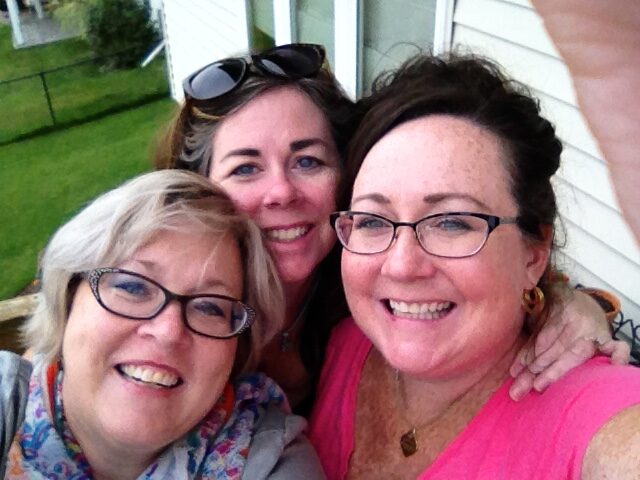
You are not your cancer. You can do what you want to do with it.
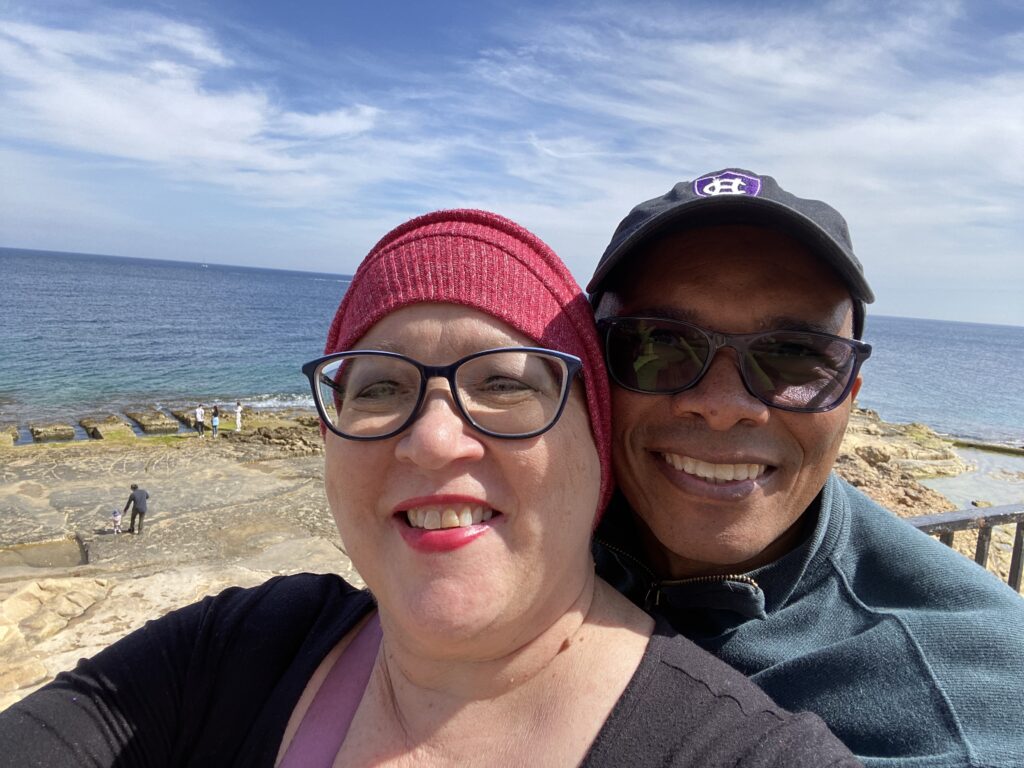

Special thanks again to Karyopharm Therapeutics for its support of our independent patient education content. The Patient Story retains full editorial control.

Inspired by Colleen's story?
Share your story, too!
More Endometrial Cancer Stories
Willow B., Pelvic Cancer, Grade 1, Stage 2.5
Symptoms: Persistent fever-like chills, scratchy throat, fatigue, post-orgasm pain, heavy bleeding, severe cramping
Treatments: Surgery (radical hysterectomy), radiation, chemotherapy, hormone replacement therapy (HRT)
...
Mary M., Endometrial Cancer, Stage 4B, Grade 2
Symptoms: Unusual fatigue, urinary tract infections, extreme pain on the right side of the abdominal area
Treatments: Surgery (hysterectomy), chemotherapy, immunotherapy
...
Margie W., Endometrial Cancer, Stage 1B, Grade 3
Symptoms: Persistent irregular bleeding
Treatments: Surgery, chemotherapy, brachytherapy
...
Lexie W., High-Grade Endometrial Stromal Sarcoma
Symptoms: Prolonged period, severe cramps, difficulty breathing
Treatments: Surgery, chemotherapy, proton beam therapy
...
Kandie D., Mismatch Repair Deficient (dMMR) Endometrial Cancer (Endometrial Adenocarcinoma), Stage 3c1 Grade 3
Symptom: Daily vaginal bleeding for over one year
Treatments: Surgery (laparoscopic hysterectomy), chemotherapy, immunotherapy
...
Gigi D., High-Grade Serous Carcinoma, Stage 1A, HER2+, PR+, ER-
Symptoms: Hiccup-like sensations behind the sternum, gastrointestinal issues, spotting
Treatment: Chemotherapy (carboplatin & paclitaxel)
...
Ellen P., Endometrial Cancer, Stage 3C, Grade 3
Symptoms: Felt like either a UTI or yeast infection
Treatments: Chemotherapy (carboplatin and paclitaxel), surgery (hysterectomy), radiation
...
Colleen J., Endometrial Cancer, Stage 4 (Metastatic)
Symptoms: Very large blood clots during menstruation, anemia
Treatments: Chemotherapy, radiation therapy (brachytherapy), surgery (full hysterectomy), immunotherapy
...
